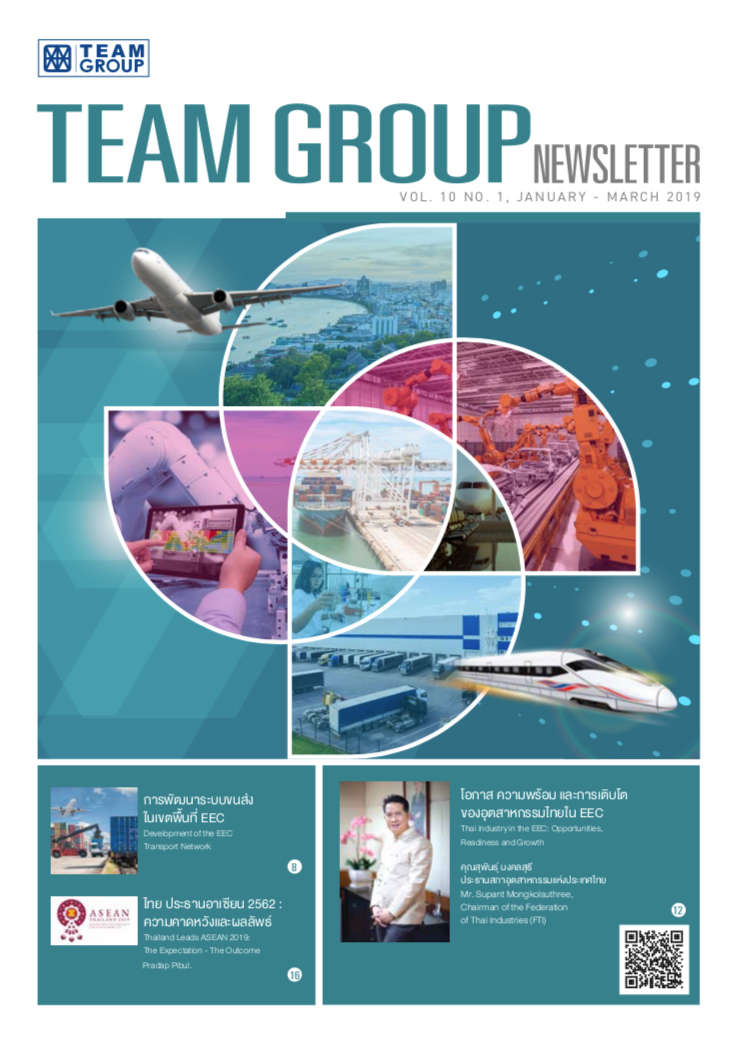NEWSLETTER
VOL.10 NO.1 • JANUARY-MARCH 2019
Be Prepared for the 4.0 Era
Hello to the Year of the Pig!
In 2019, Thailand will have the great honor of chairing the Association of Southeast Asian Nations (ASEAN). Despite the fluctuating global economy, Thailand’s economy is recovering thanks to support from the public sector in expediting infrastructure development in the Easter Economic Corridor (EEC). The main task is to connect all transport modes, be they by land, water, or air, in a bid to enhance both competitiveness and innovative capacity to prepare for the Thailand 4.0 era.
TEAM GROUP is always prepared professionally for new opportunities by employing competent experts and using a mentor system. In “What’s Going on?”, I have elaborated on how this system works.
This issue of the TEAM GROUP Newsletter is honored by an interview, in “Talk with TEAM”, with Mr. Suphant Mongkolsuthree, Chairman of the Federation of Thai Industries. The interview addresses overall readiness and growth of Thai industries in the EEC. Otherwise, in “Different Facets”, Dr. Parichart Pattanamekar, a TEAM GROUP expert, discusses infrastructure development in the EEC in the context of Smart City generation.
Other informative and interesting contributions include Dr. Anat Abhabhirama’s advice on “True Happiness”.
To celebrate the Year of the Pig, which signifies abundance and auspiciousness, I would like to wish all of you and your families happiness, success, and safe trips throughout the year.
TEAM GROUP: Heading towards the Thailand 4.0 Era
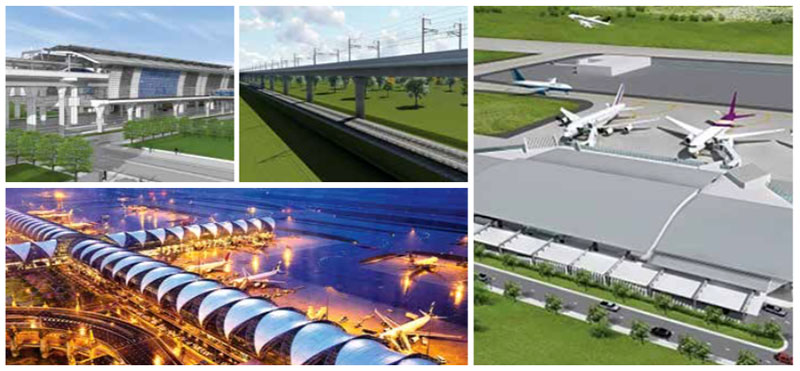
Thailand is now moving towards the Thailand 4.0 era. This means the Thai economy is being driven by creative innovation. In this context, the government has earmarked three provinces, namely Chachoengsao, Chon Buri, and Rayong as the Eastern Economic Corridor (EEC). It has established target industries and boosted investment in infrastructure development. These advances will lead to urban development to support and facilitate upcoming investment and economic activities in the area.
Recently, TEAM GROUP has wisely introduced new technology to a considerable number of projects to ensure readiness for Thailand 4.0. We are very proud of being a part of infrastructure development and urban development in the EEC as well as being involved in the following significant public projects:
1. Consulting services on revised engineering, economic, financial, and environmental feasibility studies for the Laem Chabang Port Phase 3 Project to support rail freight transport and enhance the automation system under the public-private partnership (PPP) scheme
2. The Railway Efficiency and Capacity Enhancement (Hua Mak – Chachoengsao – Si Racha Section) and Double-track Railway Development (Si Racha – Map Ta Phut Section) Projects
3. Feasibility study on the PPP scheme for the Uttraphimuk Elevated Tollway Extension from Rangsit to Bang Pa-in
4. Project Management and Construction Supervision for the Pink Line Project (Khae Rai – Min Buri)
Consulting Services on Revised Engineering, Economic, Financial, and Environmental Feasibility Studies for the Laem Chabang Port Phase 3 Project to Support Rail Freight Transport and to Enhance the Automation System under the Public-Private Partnership (PPP) Scheme
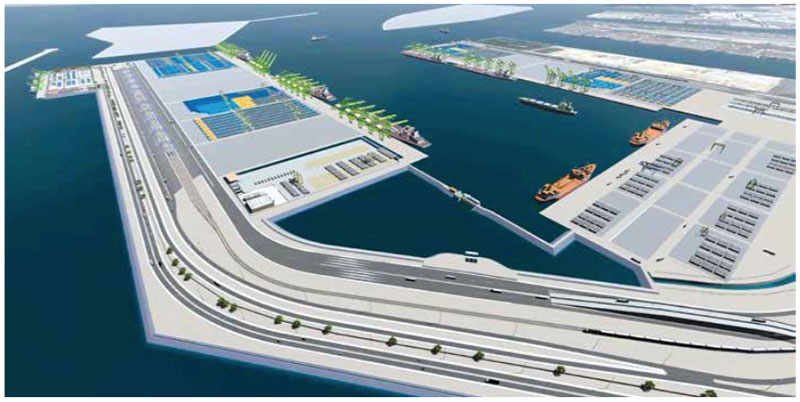
Client: Port Authority of Thailand (PAT)
The Laem Chabang Port Phase 3 Project is an EEC development plan with strategic partners within the public sector and Thai and international private entities for capacity enhancement of Laem Chabang Port. The project will enable Laem Chabang Port to handle 18 million twenty-foot containers (TEUs) per year and support rail freight transport via an enhanced automation system.
TEAM GROUP was entrusted with revision of the engineering, economic, and financial feasibility study, the investment approach study, the environmental impact assessment (EIA), market sounding sessions, preliminary detailed design, the request for proposal (RFP) and relevant documents, environmental and health impact assessment (EHIA) reports, and consulting services for the Port Authority of Thailand on investment, management, and operation.
Railway Efficiency and Capacity Enhancement (Hua Mak – Chachoengsao – Si Racha Section) and Double-track Railway Development (Si Racha – Map Ta Phut Section) Projects

Client: State Railway of Thailand
These projects are part of the infrastructure and rail-based public transport service development scheme which is being expedited to enhance national competitiveness in international trade, reduce logistics costs, and strengthen the economy.
TEAM GROUP was entrusted with revision of the detailed design, economic and financial analysis, construction costs, and tender management for commuter trains and long-distance trains linking mass transit systems inBangkok and its vicinity (Hua Mak – Chachoengsao Section), totaling 46 km in length. Also, TEAM GROUP was assigned to conduct the feasibility study, detailed design, and EIA for the double-track railway (Hua Mak – Chachoengsao – Si Racha Junction – Map Ta Phut Section), totaling 200 km in length.
Feasibility Study on a PPP Scheme for the Uttraphimuk Elevated Tollway Extension from Rangsit to Bang Pa-in
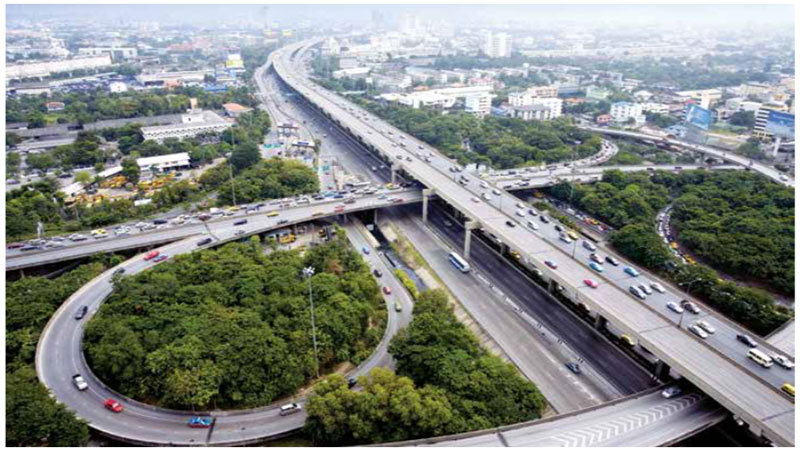
Client: Department of Highways
This tollway extension is part of the Bangkok – Chiang Khong Intercity Motorway (M5) Project which aims to mitigate traffic congestion, expand the road network in upper Bangkok and adjacent areas, and offer links to intercity motorways via the the Bang Pa-in – Nakhon Ratchasima Intercity Motorway (M6) and to the northeastern region. This project will be implemented under a PPP scheme.
TEAM GROUP was entrusted with the engineering, economic, environmental, financial feasibility study, report and analysis in compliance with the Private Investment in State Undertaking Act B.E. 2556 (2013). TEAM GROUP also studied legal issues and likely compliance risks, produced the request for proposal, terms of reference (TOR) and other significant terms, and a draft contract; we also analyzed and proposed guidelines for contract management and public sector return management.
Project Management and Construction Supervision for the Pink Line Project (Khae Rai – Min Buri)
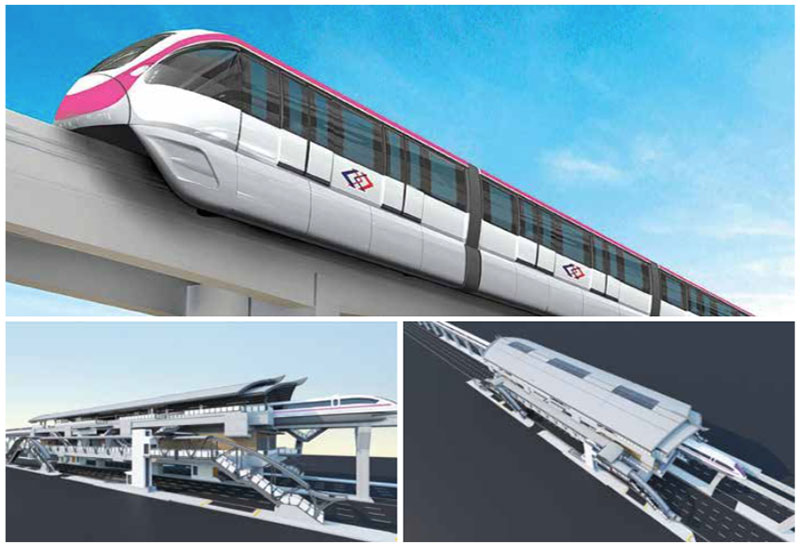
Client: Mass Rapid Transit Authority of Thailand
The Pink Line Project (Khae Rai – Min Buri) is part of The Mass Rapid Transit Master Plan in Bangkok Metropolitan Region (M-MAP). The project features a feeder line employing a straddle-type monorail system which operates on an elevated railway, totaling 34.5 km in length. It consists of 30 stations and is connected to the Purple Line, the Green Line (North), the Red Line (Bang Sue – Rangsit Section), and the Orange Line (Thailand Cultural Centre – Min Buri Section).
TEAM GROUP was entrusted with project management and implementation as well as system integration and issuance of the commissioning certificate. The task included ensuring safety and efficiency standards. TEAM GROUP also co-worked with the assigned independent engineers and developed a database for project safety information to ensure system harmonization and retroactive inspection.
Development of the EEC Transport Network
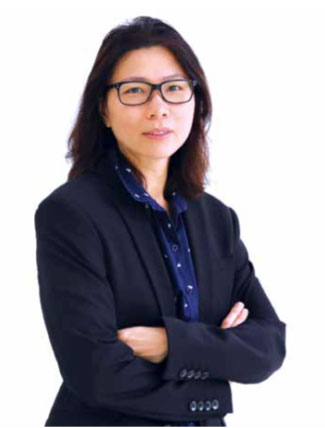 At present, all main transport routes are heading towards the Eastern Economic Corridor (EEC), a special economic zone which is a further extension of the Eastern Seaboard Project, turning the agricultural land into an ideal area for industrial expansion. This development has generated a great leap forward for national economic growth. A talk with Dr. Parichart Pattanamekar, TEAM GROUP’s Assistant Professional Leader – Transportation gives a glimpse into what is transpiring.
At present, all main transport routes are heading towards the Eastern Economic Corridor (EEC), a special economic zone which is a further extension of the Eastern Seaboard Project, turning the agricultural land into an ideal area for industrial expansion. This development has generated a great leap forward for national economic growth. A talk with Dr. Parichart Pattanamekar, TEAM GROUP’s Assistant Professional Leader – Transportation gives a glimpse into what is transpiring.
Dr. Parichart Pattanamekar Assistant Professional Leader – Transportation
Infrastructure Development in the EEC
To achieve anticipated results, the government has set up eight development plans, one of which is the Development of Infrastructure in the Eastern Economic Corridor. The plan is a vital mission to increase the efficiency of road-, rail-, water-, and air-based transport systems, as well as to facilitate larger amount of passengers and freight in a seamless manner, for example, international rail and water intermodal freight transport.
Dr. Parichart observed, “There are four infrastructure development mega projects in the EEC, namely: 1. Development of U-Tapao Airport and Eastern Airport City, 2. Construction of Maintenance, Repair and Overhaul (MRO) facilities, 3. Development of Laem Chabang Port, Phases 3-4, and 4. Development of Map Ta Phut Port. All projects are implemented under the public-private partnership (PPP) scheme.”
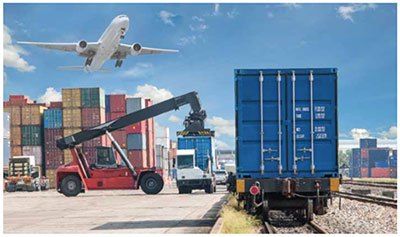 The PPP scheme is a key mechanism for national development, especially for large-scale and mega budget projects. It is an amalgamation of financial support and expertise from both the public and private sectors.
The PPP scheme is a key mechanism for national development, especially for large-scale and mega budget projects. It is an amalgamation of financial support and expertise from both the public and private sectors.
“TEAM GROUP was assigned by the Eastern Economic Corridor Office and to monitor, inspect, and supervise a number of EEC projects (the socalled project management office or PMO). As a PMO, we are responsible for the measures and the process of project management, inspection, and supervision to achieve successful and expected outcomes. Project progress will be monitored and reported. Apart from administrative tasks, we also provide consulting services for projects and executives. In this context, TEAM GROUP is capable of capturing the overall picture of EEC projects,” Dr. Parichart continued.
It may appear to be only an administrative job but a PMO’s role is vital, especially for organizations with a large number of mega projects as it is responsible for the monitoring and overseeing of the project to achieve ultimate goals. The PMO is also involved in making suggestions and finding solutions to problems and constraints so that the project will meet its objectives.
Double-track Railway Linking Three Ports
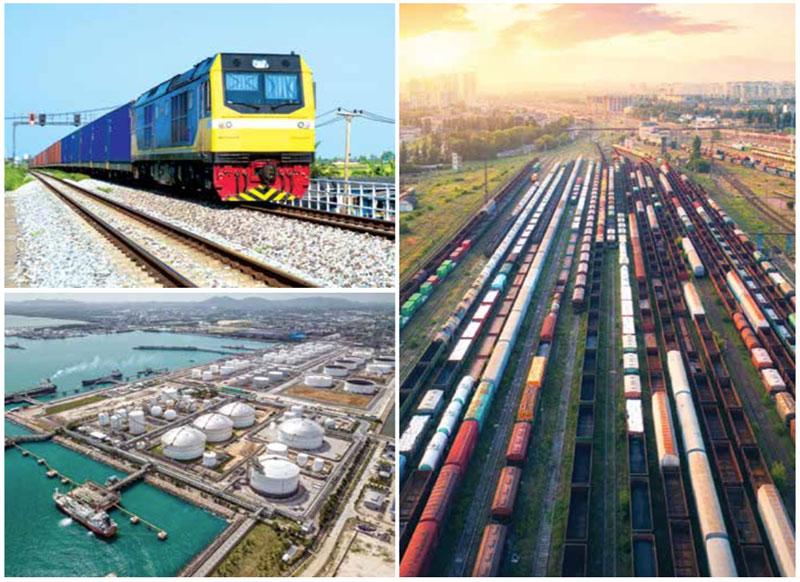
Apart from the four mega projects, the Double-track Railway Project Linking Three Ports is being expedited for logistics cost reduction and to boost international competitiveness.
“The Double-track Railway Project Linking Three Ports involves Laem Chabang Port, Map Ta Phut Port, and Sattahip Port; each of which serves specific purposes. Laem Chabang Port focuses on importing and exporting cargo freight, Map Ta Phut Port focuses on freight transport, mainly gas, within Map Ta Phut Industrial Estate. Sattahip Port will be developed as a cruise liner port, employing the roll on, roll off (Ro-Ro) shipping method – container trucks are loaded in the ship and then transported.
“The Project’s objective differs from that of the High- speed Train Linking Three Airports. These airports mainly focus on passenger transport. However, the Double-track Railway Project is a rail extension from Bangkok to Chachoengsao, Si Racha, and Map Ta Phut Port. This rail system serves both passengers and freight transport.”
TEAM GROUP and Infrastructure Development
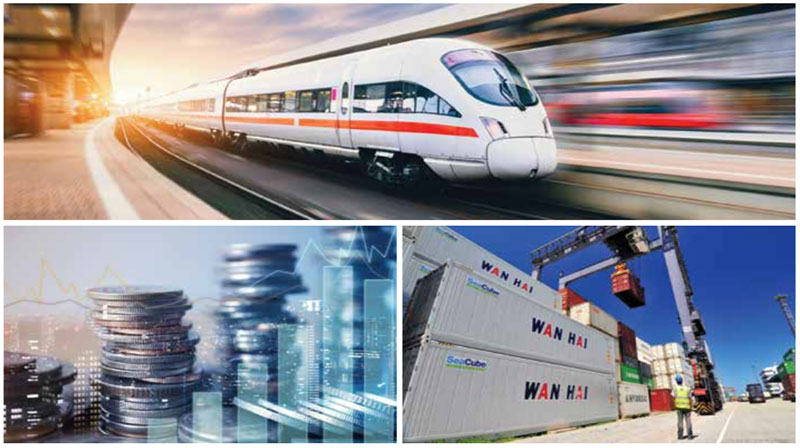
TEAM GROUP is not only renowned for its consulting services on water resource management but is also adept at infrastructure development. TEAM GROUP was entrusted with revision of the Mass Rapid Transit Master Plan in Bangkok and its Vicinity, High-speed Train Project (Bangkok – Chiang Mai), The Red Line Commuter Train Project (Bang Sue – Rangsit), The Green Line Project (Mochit – Saphan Mai – Lum Luk Ka), Construction of the Passenger Terminal Complex, Suvarnabhumi Airport, and Laem Chabang Port Project, Phase 3.
“TEAM GROUP’s executives and personnel boast exceptional competence, passing on their experience from generation to generation. As such, TEAM GROUP is fortunate to have many professionals as well as benevolent and unique alliances to broaden the range of knowledge and reach of other branches of expertise.
“With this providential opportunity to be involved in many EEC projects, TEAM GROUP is stepping forward to apply the experiences of our Thai engineers in infrastructure development for road-, rail-, water-, and air-based systems.”
Infrastructure development is a vital key for economic, social, and environmental development. Effective management will thus enhance development efficiency.
Thai Industry in the EEC: Opportunities, Readiness and Growth
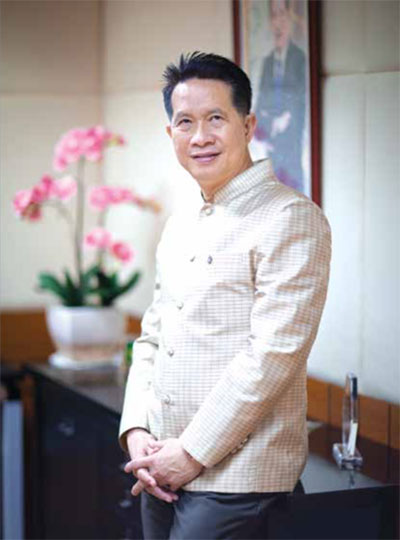 One of the government’s strategies in moving towards “Thailand 4.0” is the setting up of ten key industries with promising investment inducements for the development of new industries to generate future trade and investment. The EEC is certainly an economic zone that is acquiring abundant financial support. In this issue, Mr. Supant Mongkolsuthree, Chairman of the FTI, talks about opportunities, readiness, and growth for Thai industry in the EEC.
One of the government’s strategies in moving towards “Thailand 4.0” is the setting up of ten key industries with promising investment inducements for the development of new industries to generate future trade and investment. The EEC is certainly an economic zone that is acquiring abundant financial support. In this issue, Mr. Supant Mongkolsuthree, Chairman of the FTI, talks about opportunities, readiness, and growth for Thai industry in the EEC.
Mr. Supant Mongkolsuthree, Chairman of the Federation of Thai Industries (FTI)
Moving forward provides opportunities
In this world of rapidly advancing technology and innovation, most industries are managing to adapt to change.
“Nowadays, business owners have to keep pace with emerging modern technologies and innovations or they will fail. Modern technologies can make or break an industry, especially in the case of the latter if it doesn’t strive to keep pace with developments. Being technologically savvy allows industries to flourish and broaden their outreach,” Mr. Supant said.
“Thai industries have never stopped growing. They are adept at the art of self-improvement and this is particularly applicable to the big players. Giants like the Siam Cement Group (SCG), PTT, Charoen Pokphand Group (CP), and Thai Braverage (ThaiBev) boast massive budgets and can invest heavily in innovations, research and development. They can afford to branch into automation and artificially intelligent (AI) machinery to improve manufacturing and output quality. Contrariwise, small and medium industries need support from the government, educational institutions, and other agencies for the adoption of such technology,” Mr. Supant explained.
Presently, the Federation of Thai Industries (FTI) is serving as a middleman between research bodies such as educational institutions and relevant entities, both from the public and private sectors, to ensure that the development of small and medium industries is in tandem with that of their larger counterparts.
“FTI is accelerating development cooperation in a bid to encourage research into new technologically smart products. We are currently highlighting ‘Industry Transformation’ which is the transition of Thai industries to the 4.0 era. For small and medium industries, the Big Brother project is supporting research, development and training,” the FTI Chairman continued.
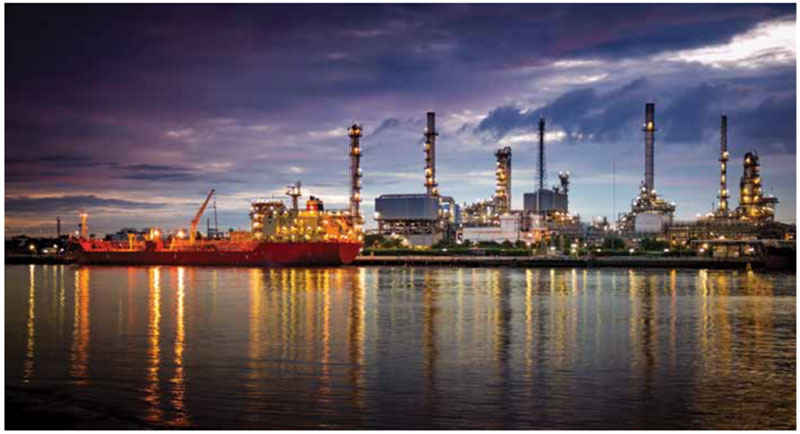
Support from the FTI
Mr. Supant indicated that Thai people are talented, but their cultures, beliefs, and behavioral norms are factors that constrain economic development. Addressing these issues, including the establishment of organizational culture in both the public and private sectors will lubricate the growth of the Thai economy.
“The FTI has five strategies for supporting the industrial sector to achieve sustainable progress: 1) Strong connectivity; 2) Continuous development of innovations in cooperation with educational institutes; 3) Establishing the FTI Academy; 4) Human resource development; and 5) Environmental awareness or development of green industry. The latter is very important and cannot be ignored. We are encouraging all factories to protect the environment and not pollute it,” Mr. Supant concluded.
A focus on the deployment of modern technologies and innovations, human resource development, environmental protection, and a strong network of partners combined with governmental support will strengthen Thai industry in its drive towards the 4.0 era.
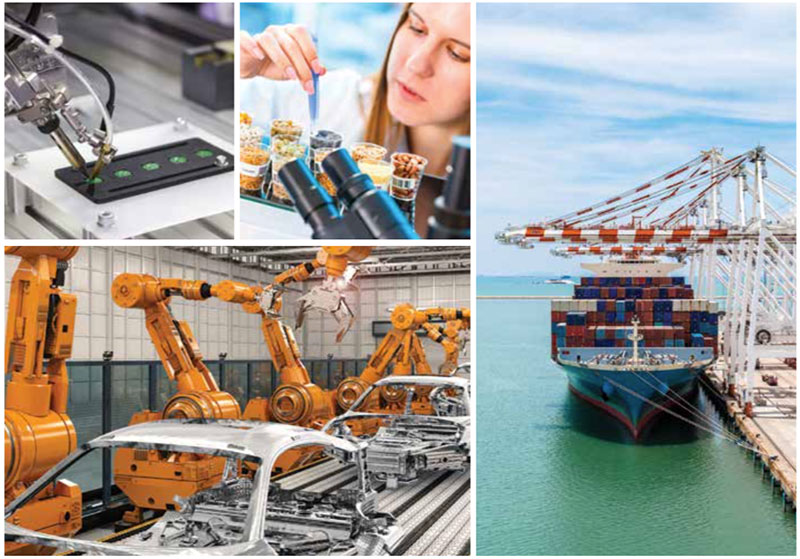
Thailand Leads ASEAN 2019: The Expectation – The Outcome
Pradap Pibula.
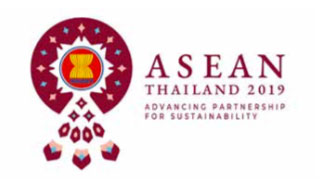
It has been a decade since Thailand effectively carried ASEAN forward as the-then Chair of the organization; however, this tenure was clouded by internal political conflict domestically. This year, it is Thailand’s turn to chart the region’s course once more. Civil unrest has subsided and the political situation has stabilized under “the new game rules for democratic governance.”
In taking the lead for ASEAN, the country needs to regain trust, confidence and credibility among other community members and in this context the government already has a clear plan. Last November 21, Foreign Minister Don Pramudwinai launched “ASEAN 2019: Thailand Chairmanship” using the theme “Partnership for Sustainability.” The Minister also shared his approach to the upcoming task, i.e. by adopting a new “3 Cs strategy”, the 3 Cs being creativity, complementarity and continuity (sources: YouTube; Saranrom Radio). After half a century of remarkable achievements, the ASEAN operating principle based on the former 3 Cs (consultation, cooperation and consensus) is deeply embedded in the ASEAN modus operandi for multilateral collaboration; however for the ASEAN Community to move forward during the 4G revolution, the old mode of 3Cs no longer suffices.
As ASEAN is transitioning into the digital age, Thailand believes that for the Community to compete effectively, stay relevant and grow in the future, the Chair needs to navigate the future with the new set of 3Cs: Creativity: to address multiple challenges and the speed as well as impact of technological advances; Complementary: for implementing regional projects that efficiently integrate ASEAN Community cooperation, such as the provision of seamless logistics services; and Consensus: for meeting strategic objectives.
As the new ASEAN Chair, Thailand will vigorously continue to pursue the agenda passed on by Singapore, the former ASEAN Chair whose goal was to make ASEAN resilient and innovative.
ASEAN conducts hundreds of meetings annually, and thousands of projects are implemented and managed. During the Thai tenure it will be important to closely track activities in the key focus areas. The Thai Foreign Ministry, which serves as Thailand’s National Secretariat, has already singled out a number of initiatives. Of high priority is effective implementation of “ASEAN Connectivity 2025” which includes:
• The ASEAN sustainable urbanization strategy and the ASEAN Smart City Network, initially among 26 cities;
• The digitization of micro-, small- and medium-sized enterprises; the ASEAN Single Window regional initiative; the promotion of digital ASEAN;
• Development of an ASEAN database on trade routes;
• Developmentofaframeworkforassessingsupply-chain efficiency;
• Establishing the initial rolling priority pipeline for potential ASEAN infrastructure projects.
(For further information, visit updates from the ASEAN Connectivity Microsite website.)
During the last chairmanship, Thailand highlighted and initiated the strategy on the enhancement of ASEAN Connectivity covering land-based and multi- modal transportation networks, energy security and consolidating information and communications technology (ICT) infrastructure and linkages. The ongoing aim is to further integrate the ten member states into an effective, amicable, and competitive regional community.
Implementation of the ASEAN Connectivity thrust has had significant results. For example, the ASEAN highway network on the mainland has been streamlined, resulting in a border trade boom. The railway connection now links Singapore and Cambodia through Thailand. Moreover, the ASEAN Single Window network is ready for operation among some ASEAN countries. Nonetheless, inefficient cross-border management is still a major hurdle, impeding seamless logistical services and inhibiting the growth of mainland ASEAN countries. Resolving this issue will test Thai creativity.
With an anticipated increase of 70 million urban residents by 2030 and 150 million tourists by 2025, it is estimated that ASEAN needs to invest over USD 100 billion annually on infrastructure. ASEAN therefore needs to strengthen member state complementarity for establishing land- based multimodal transportation system connections as well as ties with partners beyond the region, to equate with the excellent maritime shipping network services that promote trade.
Besides establishing seamless logistics, the key to success is the continuity of countless cooperative projects managed by ASEAN sectoral bodies and the need for proactive Thai leadership. Otherwise, there are still human resource issues, particularly the deployment of a mobile skilled workforce (e.g. engineers and technicians) that require attention. In this era of climate change, comprehensively addressing environmental protection is also mandatory.
In the end, the effectiveness of Thailand ASEAN Chairmanship 2019 depends on the role and performance of all Thai stakeholders,not just the public domain. We all have to chip in, make our voice heard. The Thai ASEAN leadership would certainly be highly commmended, if the country does not waiver from the aims and purposes of Bangkok Declaration 1967. To pass on to Vietnam in 2020, “the peaceful,harmonious and prosperous ASEAN region.”
I’ve never walked alone
Mentoring: Inspiration from the Tham Luang Rescue Mission
Dr. Prasert Patramai

A good mentor or coach successfully navigates his protégés along the sometimes rocky road to success. Consider the thirteen members of the Wild Boar Football Academy who were trapped in Tham Luang Cave and eventually rescued by a team of Thai and international experts; the young team’s unity was attributable to their trust in Ekkapol Chantawong, their coach and friend, who, apart from being a good footballer, was also a good leader. Such solidarity should inspire us to cope with future challenges and opportunities.
Sacrifice is true love and always being there for each other. The Tham Luang rescue mission should guide our work ethic. Friendship and cooperation are part of unity, sacrifice, and trust, which are motivations for improving our lives. These are the qualities of true leadership and bravery.
Good teamwork, in which every problem is mutually resolved, generates synergy. Mentoring has been established in TEAM GROUP for a long time. From the outset, mentoring was advocated by senior management and thus subsequent obstacles and difficulties were overcome; as a result TEAM GROUP stands as it is today. My book “TEAM GROUP’s Secret Unveiled”, written on the occasion of the TEAM GROUP’s 37th anniversary, elaborated on this concept, which is one of the 37 strategic management tips in the book.
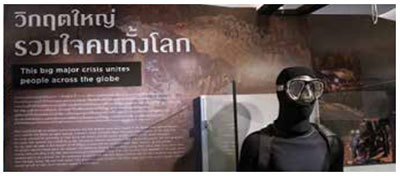 Mentoring encourages effective cooperation between seniors and their subordinates through the provision of guidance and “on-the-job training”. It also supports professional inheritance from generation to generation. At TEAM GROUP, the second generation of senior administration now holds executive positions.
Mentoring encourages effective cooperation between seniors and their subordinates through the provision of guidance and “on-the-job training”. It also supports professional inheritance from generation to generation. At TEAM GROUP, the second generation of senior administration now holds executive positions.
The mentoring system involves advising, training, assigning tasks, and monitoring outcomes to ensure that work outputs meet set standards. Mentors can be senior officers, supervisors, senior advisors, or specialists and experts who share their experience, knowledge, tips and techniques, as well as adaptation methods to new working environments to incoming staff members. Good leadership qualities are essential for an effective mentor who must be willing to share expertise, think positively, be a respected member of the professional team, be responsive to organizational values, and be willing to accept different opinions and creativities among contemporaries.
The mentee is the person assigned with tasks and specific training. She/he could be new employee without work experience or an employee who is being promoted to a higher position.
Company staff and their outputs fuel business. No matter how big or small the job is, human resources are essential for its fulfillment. Professionals must have a strong foundation in their position. Those who lack experience need advice from those with refined skill-sets so they do not have to struggle on their own. This is why the mentoring system is a key factor in driving an organization towards achievement of its goals.
Lessons learned from the success of the Tham Luang rescue mission can be compared to the results of good sporting conduct. Different players keep their positions and roles. Qualifications, including skills and experiences, are essential in selecting players for a game. Each position needs a substitute. Rules and regulations should be adhered to. And finally, esprit de corps will lead to happiness and success.
Developing the EEC into a Smart City
Dr. Parichart Pattanamekar
Nowadays, city planning and urban development have become more complicated due to rising urban populations. Therefore, city planning does not mean creating a city on unoccupied land but determining the most appropriate approach for the city’s potential development based on its topographic and demographic conditions.
The Eastern Economic Corridor (EEC) is destined to become a trade and investment hub where economic activities are bolstered through infrastructure and human resource development as well as efficient technology management. To ensure successful and sustainable development, Smart City principles, which focus on the use of technology and communications for area development, will be adopted for the EEC.
The Board of Investment (BOI) is promoting investment in smart city development in terms of smart city area development, smart city system development and smartcityindustrialzonedevelopment.Thetablebelow elaborates planning for these three aspects.
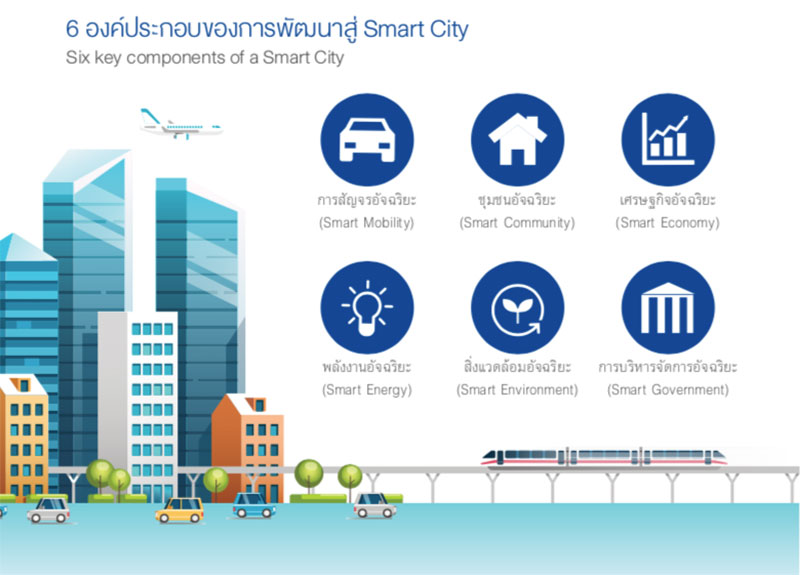
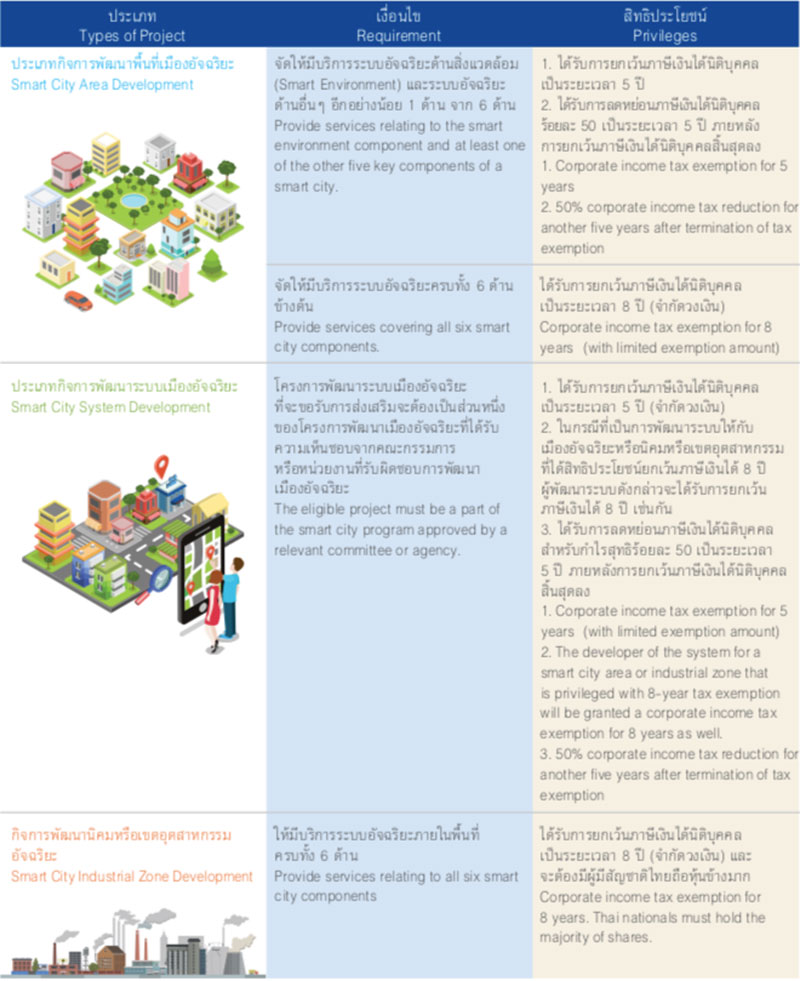
A New Year Wish for “True Happiness”
Dr. Anat Arbhabhirama

In prehistoric times, humans had no proper concept about the time of day, month or year, they just lived their lives the same way every day. Later when they learned to create calendars, people started to celebrate the advent of the new year. Although the timing of the new year may vary in different cultures, one common element is the presentation of gifts and good wishes to each other, mostly for happiness, success, and good health.
Harvard University recently published one of the longest studies ever conducted, the Harvard Study of Adult Development. The study aimed to find ‘the clues to leading healthy and happy lives’ by tracking the lives of over 700 Americans. Started in 1930, it is still ongoing.
Asked about the ultimate goals in their lives, the three most popular answers by Americans were wealth, fame, and success. Surprisingly, the Harvard study found that ‘relationships and how happy we are in our relationships has a powerful influence on our health’.
 The study’s findings are in line with the Thai social context, or maybe of all the world’s, that a strong family relationship is the foundation of human happiness.
The study’s findings are in line with the Thai social context, or maybe of all the world’s, that a strong family relationship is the foundation of human happiness.
But more importantly, ‘true happiness’ differs among people. It is necessary to identify true happiness in our lives. Misinterpretation of our true happiness may lead to an unhealthy life. For example, one person’s idea of true happiness may be good health, but for another it may mean having 50 million baht by the age of 50. Moreover, the notion of true happiness may change during our lives, so, it is recommended that you review your true happiness from time to time.
For this New Year, I hope you can find your ‘true happiness’, and reflect if you have achieved it in the previous year, and, if not, then make plans and targets to achieve it in the future.
A healthy tip: How to Tame Your Emotions
Imagine how happy you would be if you could completely control and manage your emotions when something upsets you. It is not too difficult to ‘tame your emotions’, nevertheless some practice is needed.
First, start with the ‘belief’ that emotions are personal and we can control them.
Second, always stay healthy by eating well, taking regular exercises, and getting sufficient rest.
Third, practice positive thinking.
Fourth, if the first three measures fail, then you need to follow Buddhist teaching which is surprisingly in line
with advice from modern medical doctors. Both schools teach us to examine our experiences each day and try to recognize when any strong emotions surfaced; then just let them go without doing anything. By doing this, the emotion will certainly soon disappear.
Try ‘taming your emotions’ with these practices you will find more happiness in life.
Enjoy a Train Trip along the Eastern Coast

The most-talked-about area in Thailand currently is the Eastern Economic Corridor (EEC). Several mega projects are being implemented such as development of the Double-track Railway Linking Three Ports. Apart from linking three ports and the project’s role in enhancing major freight transport systems and logistics, there are magnificent tourist attractions in the eastern region as well.
Paet Rio Station: You can pray to Phra Buddha Sothorn (Luang Phor Sothorn) at Sothon Wararam Woraviharn Temple and make merit. You can also pray to Phra Phikanet (Ganesha), the god of fortune and success, at Phrong Akat Temple (in the blessing posture), at Saman Rattanaram Temple (in the reclining posture), and at Phra Phikanet Park (in the standing posture).
Chon Buri Station: You can pray to Phra Buddha Sihing for an auspicious future or enjoy sightseeing at Grand Canyon Chon Buri in Khiri District.
Bang Phra Station: You can visit Bang Phra Reservoir, enjoy stunning views of gigantic reservoirs amidst luxuriant tropical growth, or catch a coach to Bang Saen Beach and enjoy the seaside with your family.
Si Racha Junction Station: Travel to Loy Island and enjoy magnificent seafood by the sea.
Pattaya Station: If you have never taken a train to Pattaya Beach, try it and you’ll be hooked. This is an optional travel mode for an easy, relaxing trip.
Sattahip Commercial Port Station: The station is connected to Sattahip Port or Chuk Samet Port which will be developed into an enormous port for ocean liners. You can visit Nang Rong Beach or witness the grandeur of the aircraft carrier HTMS Chakri Naruebet. U-Tapao International Airport is also linked to the station.
Apart from these venues, there are other interesting attractions. Upon completion of the Double-track Railway Linking Three Ports, traveling by train to the EEC will definitely be a comfortable option.
#Cool Trip Thailand
The Future of Autonomous Cars

Fantasy films from the Hollywood Dream Factory sometimes portray intelligent vehicles, which can drive automatically, converse with the driver, follow his commands, and provide navigating advice. The good news is that such advanced technology may be realized soon.
The autonomous car issue is a hot topic nowadays. Leading automotive manufacturers such as Toyota, Nissan, and Honda have been focusing on autonomous vehicle prototypes at their expositions. As technology advances, cars are being modified with artificial intelligence (AI) features. In the near future your car could have the following options:
Level 0 No Automation: All functions need your operation.
Level 1 Driver Assistance: You maneuver the car, the car provides information such as route suggestions, appropriate speed, speed control, safe space between cars while driving, and automatic braking feedback.
Level 2 Partial Automation: The car drives itself automatically in commonplace situations such as moving short distances while stuck in traffic without changing lanes.
Level 3 Conditional Automation: The car can move automatically in commonplace situations such as on an expressway with low traffic congestion.
Level 4 High Automation: When conditions are not normal, you need to make the driving decisions.
Level 5 Full Self-driving under All Conditions: The car can drive freely by itself without your assistance and in any situation.
Some people may think that reaching level 5 lies in the distant future, but technology is advancing at such a rapid pace that almost anything is possible now.
Source: https://www.truecar.com/blog/2018/03/05/5-levels- autonomous-vehicles/
The More We Give, the More We Gain
My Ideal Thailand
The TEAM GROUP Foundation has organized an annual art contest for elementary students on a continuous basis since 2011. The concept of “My Ideal Thailand” was set for 2018. Two groups participated – Nakhon Nayok schools and Nakhon Sawan schools. The Nakhon Nayok group numbered Wat Tha Dan School, Wat Tha Chai School, Wat Wang Yai Chim School, and Wat Hup Moei School (Group 1). The Nakhon Sawan group comprised Wichawadee School, Wat Ban Makluea School, Wat Khao Mano School, and Sri Sawan Sangkharam School (Group 2). The winning entries received scholarship prizes of 3,000 baht, 2,000 baht, and 1,000 baht, respectively for first, second, and third places.
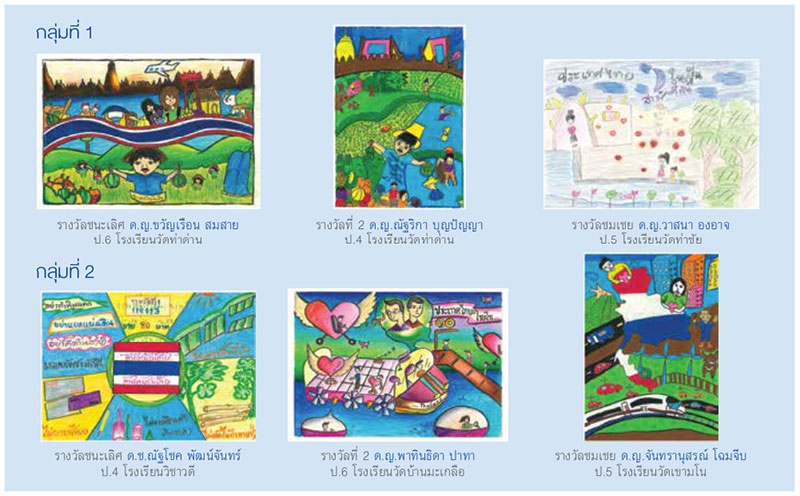
Sharing love to Raminthra Home for Blind Children with Multiple Disabilities
TEAM GROUP, TEAM GROUP Foundation and employees led by Dr.Sirinimit Boonyuen, the Foundation’s committee and secretary presented financial supports and necessities to Raminthra Home for Blind Children with Multiple Disabilities, which were received by Ms. Chanpen Nuanuan, Head of the Foundation Office.
TEAM GROUP’s Scholarships
TEAM GROUP and TEAM GROUP Foundation have offered scholarships to competent kindergarten and elementary students whose families experience financial difficulties in Nakhon Sawan, Nakhon Nayok and Bangkok on since 2007. The 23rd scholarship presentation, presided over by Dr. Prasert Patramai, Chairman of the Board and President of the Foundation, was held at Wichawadee School, Wat Khao Mano School, Wat Ban Makluea School, Wat Sri Sawan Sangkhram School and Nakhon Sawan School in Nakhon Sawan Province on 19 November 2018; Wat Tha Dan School, Wat Tha Chai School, Wat Hup Moei School and Wat Wang Yai Chim School in Nakhon Nayok Province on 26 November 2018; and Wat Nuan Chan School and Wat Nuan Chan Pre- school Center in Bangkok on 26 December 2018.
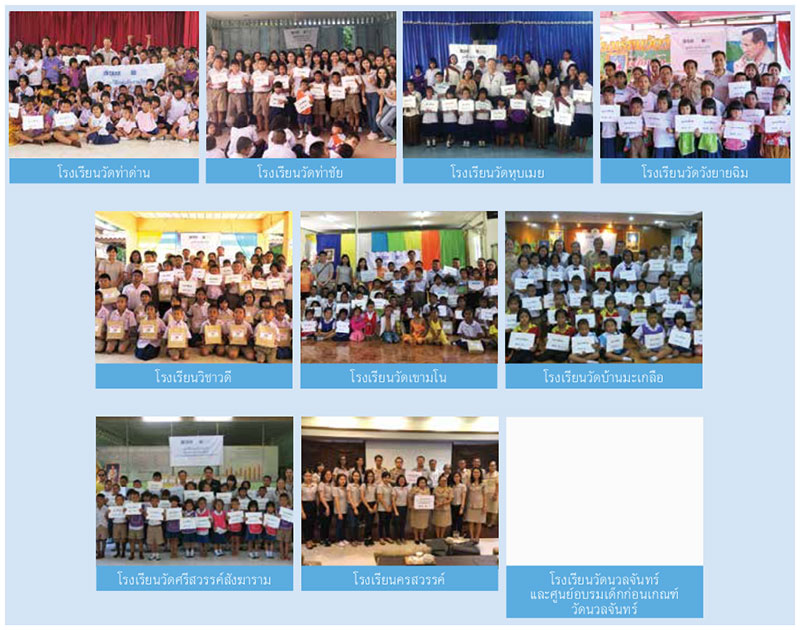
Inside TEAM
แต่งตั้งกรรมการบริหาร
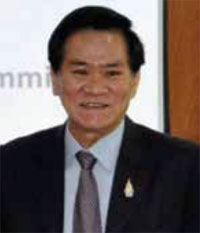 TEAM GROUP appointed Prof. Dr. Worasak as Executive Director effective from 1 October 2018. He was former president of Asian Institute of Technology (AIT). After his appointment, his work aims for international business development.
TEAM GROUP appointed Prof. Dr. Worasak as Executive Director effective from 1 October 2018. He was former president of Asian Institute of Technology (AIT). After his appointment, his work aims for international business development.
Consulting services on double-track railway linking three ports for the EEC
TEAM GROUP was assigned by SRT for feasibility study, detailed design, and EIA to boost capacity of rail-based transport – (Huamak – Chachoengsao – Si Racha Section) and Double-track Railway Development Project (Si Racha – Map Ta Phut Section).
Consulting services for area management of Bang Sue Grand Station
TEAM Consulting Engineering and Management PLC. (TEAMG) signed a consulting service contract with the State Railway of Thailand (SRT) for development and management study and preparation of draft TOR for area management of Bang Sue Grand Station.
Consulting services for EEC airport city developement
TEAM GROUP was assigned with development and design of new airport city in the EEC by the Eatern Economic Corridor Office (EECO). The project consists of U-Tapao International Airport, Laem Chabang Port, Map Ta Phut Port, and Sattahip Port.
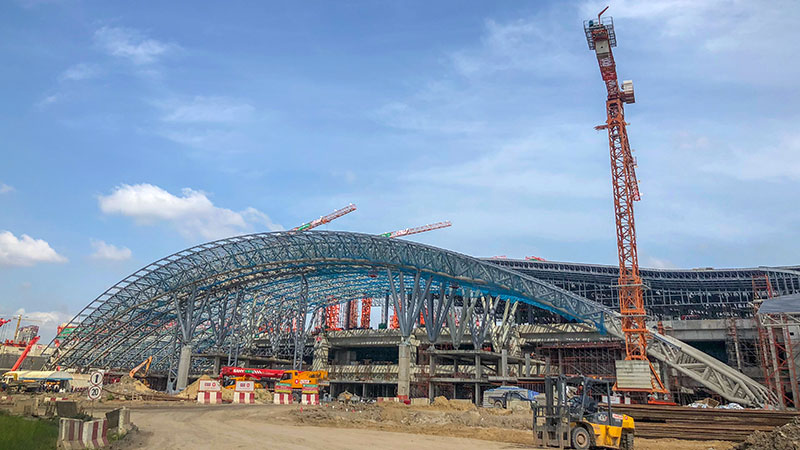
การป้องกันระงับอัคคีภัยและซ้อมอพยพหนีไฟ
A training “Fire Prevention and Fire Drills 2018” was given by Mr. Chakkrit Kongkum and Mr. Prasarn Kaewthong officers, disaster prevention and mitigation officers from Sutthisan Fire & Rescue Station, and Mr. Piya Sathukarn, from Hitachi Elevator (Thailand) Co., Ltd. at TEAM Building.
ส่งท้ายปีเก่า ต้อนรับปีใหม่ 2562
Dr. Prasert Patramai, TEAM GROUP’s chairman, executives and employees participated in “New Year Party 2018” and Buddhist ceremony, and gave scholarships to Wat Nuan Chan School and Nuan Chan Pres-chool Center. Lucky draw activity and festive party were held at TEAM Building.
การทําาแผนที่ด้วยโดรน
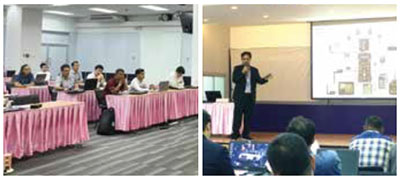
Mr. Sompat Suwapit, Vice President Service: Leader – Drone-Based Services from TEAM GROUP, gave a lecture on “Drone Mapping Workshop” at Chulalongkorn University Research Building.
Smart Engineering
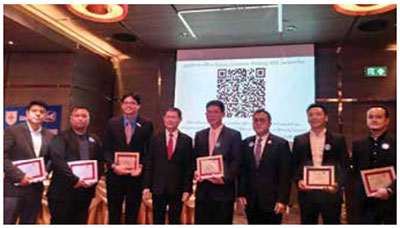
Experts from TEAM GROUP was invited for National Engineering 2018 at Impact Arena, Muang Thong Thani. Dr. Saratchai Ongprasert gave a lecture on “Development of building simulation in Thailand in terms of structural and infrastructural works” and “Smart engineering by building information modeling (BIM)”. Mr. Yuttana Kongcarat talked on the topic “Basic dynamo implemented with MEP”.
Ready Player? OSBIM#3
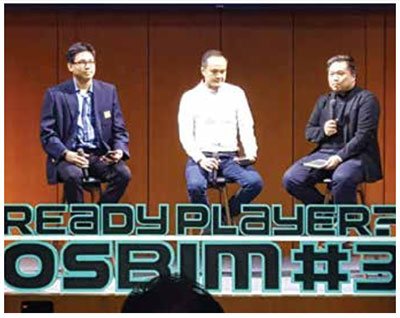
Dr. Saratchai Ongprasert, Director – Head of Advanced Technology Center, gave a lecture on “How to maximize the benefit for BIM makers and users, and how BIM will affect you?” in a seminar Ready Player? OSBIM#3 at Cyber World Tower.
ต้อนรับ Nikken Sekkei
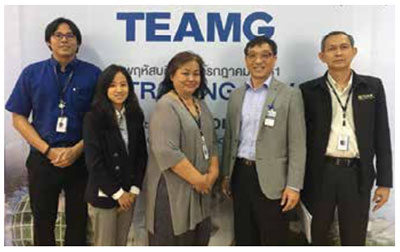
Dr. Saratchai Ongprasert and his team welcomed Dr. Naoto Tanaka, General Manager, International Project Management, Global Marketing Center from Nikken Sekkei (Thailand) Ltd., and discussed on the business opportunity in Thailand and overseas.
รู้แล้วรวยด้วยเทคโนโลยี
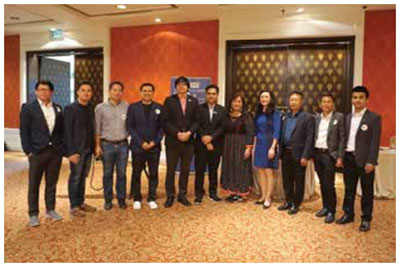
Mr. Sompat Suwapit, Vice President: Service Leader – Drone-Based Services and Dr. Saratchai Ongprasert – Head of Advanced Technology Center gave a lecture about BIM & Drone survey, “Rich through advanced construction technology” for senior executives seminar “Professional Symposium for CEO in Real Estate (RE-CU CEO-PREMIUM#4).
ต้อนรับผู้บริหารการท่าเรือสีหนุวิลล์และคณะ
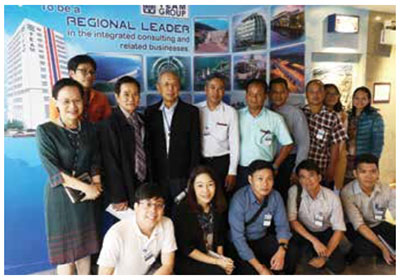
Dr. Sirinimit Boonyuen, Senior Executive Vice President- International, TEAM Consulting Engineering and Management PCL. (TEAMG) and Mr. Parinya Wongpetkao, First Vice President, Asset Pro Management Co.,Ltd. (APM) along with executives and specialists welcomed Mr. Chiv Chansophal, Director, Sihanoukville Port Special Economic Zone (SPSEZ) and staff on their visit to Laem Chabang Port and TEAM GROUP Headquaters.
งานเลี้ยงต้อนรับ
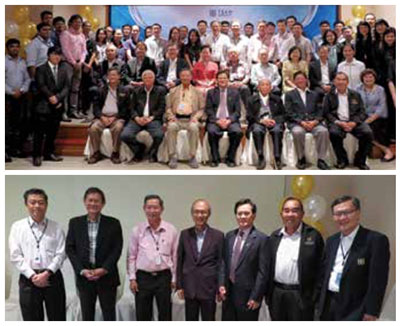
Dr. Prasert Patramai, Chairman of the Board, organized a welcoming party for Prof. Dr. Worasak Kanoknukulchai who took office as Executive Director recently.
ร่วมแสดงความยินดี
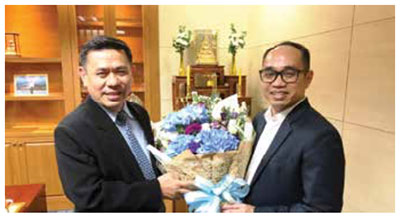
Dr. Aphichat Sramoon, Senior Executive Vice President – Private Business congratulated Dr. Suchart Chonsakpipat for his appointment as Governor of Expressway Authority of Thailand (EXAT).
รับเชิญเป็นวิทยากรบรรยาย
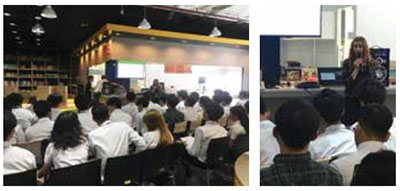
Ms. Emelie Linnea Margareta Fransson gave a lecture on “The Role of Traffic Engineer and Transportation Engineer” to civil engineering freshmen, international program, King Mongkut’s University of Technology Thonburi.
Seminars and Trainings
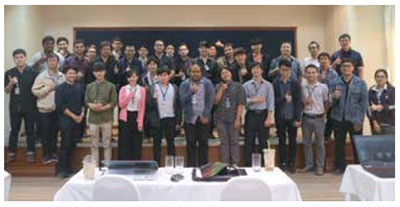
TEAM GROUP has been continuously organizing seminars, trainings, and field trips to enhance working skills and develop its personnel to meet the same goals and standards.
“Team Leading for TEAM Leadership 2018” was held to develop leadership, learn psychological knowledge for leaders, and practice effective leadership skills.
“Use of Midas nGen for Plant & BIM” was held to build understanding, readiness, and choice of career change to work in parallel with architects.
“Welfare from Social Security Fund, Workmen’s Compensation Fund, and Additional Benefits” was held to enhance knowledge about the benefits from these funds.
“Internal Auditor in line with ISO 9001:2015” was held to provide principles, procedures, and conditions of internal audit.
“Knowledge on Microsoft O365” Batch 4-5/2018 was held to provide knowledge on Microsoft O365.
“Knowledge on Individual Dashboard” Batch 2/2018 was held to provide knowledge on Individual Dashboard & Self Planning (Monthly Assignment).

 English
English
 ไทย
ไทย 